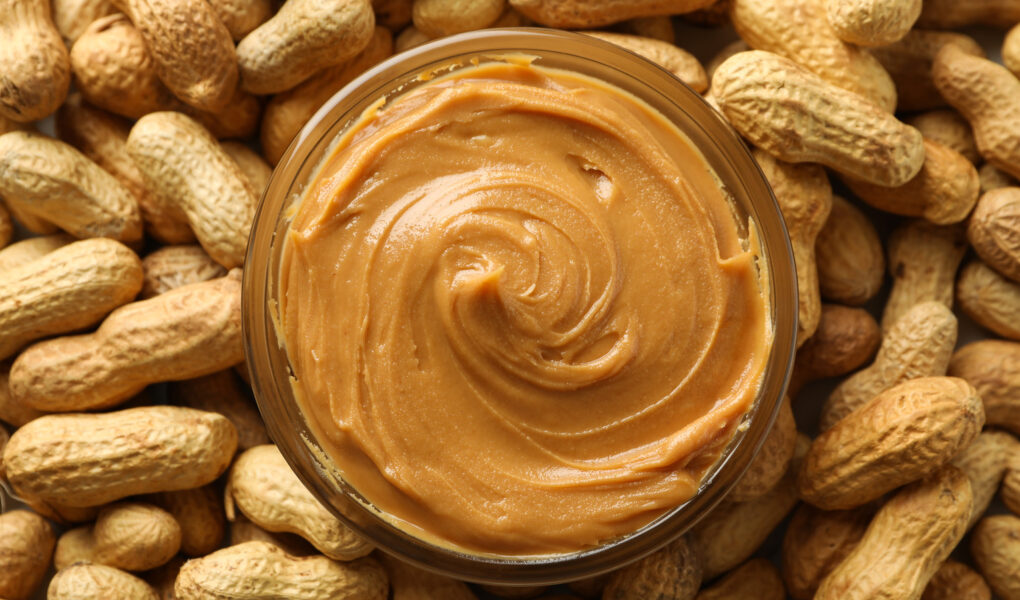Peanut butter—this creamy spread crafted from roasted peanuts—is quite an enigma. It boasts a popular and versatile reputation, flaunting a deep, nutty flavor that tickles the taste buds. Smooth or crunchy, it plays a starring role in recipes, sandwiches, and snacks alike. But amid its allure, a perplexing question lingers: does this delectable delight have a sneaky side when it comes to digestive mysteries, like the enigma of constipation? A creamy spread formed from roasted peanut butter can help answer the question, Is peanut butter constipating in your case?
Why is Peanut Butter a Cause of Constipation?
Due to its low water content and high protein and fat content, peanut butter may result in constipation. Some people may get constipation as a result of these qualities, which can slow down digestion and make feces harder. The impact on bowel regularity differs from person to person, and it also significantly depends on total food and hydration levels.
Understanding Constipation
Constipation, that common yet confounding digestive dilemma, throws our bowels for a loop. Irregular bowel movements and the challenging passage of feces are its trademarks. It’s a sly culprit, triggered by low-fiber diets, dehydration, sedentary habits, or medications. The discomfort, bloating, and strain it brings can baffle us. Yet, the constipation enigma can be cracked with strategic dietary choices, hydration, and lifestyle tweaks.
Main Causes of Constipation?
Constipation is a common digestive issue that can be caused by a number of things. In this context, we’ll look at low fiber consumption, inadequate water intake, and a sensitivity to peanuts as three major causes of constipation.
i). Low fiber intake
Constipation is largely caused by a low-fiber diet. Stool gains weight from fiber, which helps it travel more easily through the digestive system. Lack of fruits, vegetables, whole grains, and legumes in the diet can cause irregular bowel movements and make it difficult to pass stool.
ii). Poor water intake
Constipation may result from not drinking enough water. A stool becomes more passable after being softened by water. Constipation occurs when the body is dehydrated and the colon absorbs more water from the stool, making it dry and challenging to pass through the intestines.
iii). Peanut intolerance
Although uncommon, peanut sensitivity has the potential to cause sensitive people to experience digestive pain, including constipation. Peanut allergies or intolerances can cause gastrointestinal symptoms that impair regular bowel movements. Peanut intolerance, however, differs from the most prevalent reasons for constipation, which are mainly connected to nutrition and hydration.
Tips for Constipation
A combination of lifestyle modifications can frequently be used to manage constipation. In this setting, we’ll look at four important methods for treating constipation: dietary changes, exercise, stool training, and colon massage. Is peanut butter constipating for everyone, or does its effect vary from person to person?
Diet Plan for Constipation
Regular bowel motions can be encouraged by a high-fiber diet that includes lots of fruits, vegetables, whole grains, and legumes. Additionally, drinking enough water is essential for softening feces. Constipation can also be relieved by limiting processed foods and dairy if you’re lactose sensitive.
Physical Activity for Constipation
Regular exercise, such as vigorous walking, running, or yoga, activates the muscles in the intestines, assisting with the passage of feces through the colon. To maintain digestive health, aim for at least 30 minutes of exercise on most days.
Bowel training
Schedule a bowel movement at a regular time, preferably in the morning, to establish a regular bowel routine. Regularity is encouraged by consistency, which helps your body know when it’s time to eject the bowels.
Colon massage
By encouraging muscle contractions, light abdominal massages done in a clockwise direction can encourage bowel movement. This method might help with constipation relief, but it’s best to speak with a healthcare provider for advice on appropriate massage techniques.
Medication
When lifestyle changes are insufficient to relieve constipation, medications may be utilized. Over-the-counter laxatives, stool softeners, and fiber supplements are popular alternatives. Stool softeners make it easier to pass stool, laxatives encourage bowel movements, and fiber supplements enhance volume. However, because of the risk of dependence and other negative effects, they should only be used under the supervision of a doctor and with caution.
Substitutes for Peanut Butter
There are a number of alternatives to peanut butter that you can choose from:
- Almond Butter: Made from roasted almonds, it has a taste and texture that are akin to cream and nuts.
- Cashew butter is a gentle and creamy substitute for peanut butter for people who are allergic to nuts.
- Sunflower seed butter has a distinct flavor and texture and is excellent for nut-free diets.
- Soy Butter: This nutty-tasting alternative to peanut butter is made from roasted soybeans.
- Creamy and gently sweet coconut butter is fantastic in sweets and recipes with a tropical flair.
The Peanut Butter Dilemma: Finding Balance
The “Peanut Butter Dilemma” must be handled by finding a balance. Although it is a great source of protein and good fats, consumption should be cautious due to the food’s high calorie content and risk of constipation. Enjoying peanut butter while preserving digestive health and general wellbeing can be accomplished with moderation, hydration, and consideration of alternatives.
Seeking Professional Advice
For those trapped in the labyrinth of chronic constipation or caught in a web of dietary uncertainty, seeking a lifeline is paramount. Reach out to a certified dietician or a healthcare oracle. They hold the keys to unlocking the secrets, uncovering the causes, and crafting personalized dietary blueprints. With their guidance, constipation becomes a puzzle with a solution that maintains the delicate balance of nutrition.
Side Effects of Eating Too Much Peanut Butter
Consuming too much peanut butter may have negative effects. It has a lot of calories and fat, so if you don’t consume it in moderation, it could make you gain weight. Additionally, because of its low water content, overindulgence can raise the chance of constipation. People who are allergic to peanuts should be on the lookout for serious allergic reactions.
Is Peanut Butter good for Constipation?
In moderation, peanut butter can be a part of a diet that promotes digestive health. Although it isn’t a direct cure, it does include some fiber and good fats. However, due to its low water content, excessive ingestion can cause constipation. Balance your intake of peanut butter with other high-fiber foods and enough water.
Is Peanut Butter Hard to Digest?
For most people, peanut butter is not inherently difficult to digest. It has lipids and proteins, both of which are normally well digested. However, certain people with allergies or sensitive gastrointestinal systems could find it difficult to digest. To lessen any discomfort, chew it well and consume it in moderation.
Peanut allergy and intolerance
An immune system response to peanut protein causes a peanut allergy, which may result in life-threatening symptoms like anaphylaxis. Contrarily, peanut sensitivity results in gastrointestinal discomfort because peanuts are difficult to digest. In contrast to allergies, which can be fatal, intolerance typically results in less severe stomach problems. Peanuts must be carefully avoided in order to prevent responses in both scenarios.
Faqs
- How can I make informed dietary choices regarding constipation and peanut butter?
Balance your intake of peanut butter with high-fiber foods, drink enough water, and pay attention to how your body reacts in order to make educated dietary decisions.
- Does peanut butter contain fiber?
Yes, peanut butter has some nutritional fiber; a typical 2-tablespoon serving provides between 2 and 3 grams. Even though it isn’t as high in fiber as whole peanuts or other foods, this tiny quantity helps to increase your daily intake of fiber, which, when included in a balanced diet, can help with digestive regularity.
- How does fiber contribute to preventing constipation?
Fiber makes feces more voluminous and softer and encourages frequent bowel movements. It stimulates the intestines, assisting with stool flow, lowering the risk of constipation, and fostering digestive health.
- Can peanut butter alleviate constipation?
Although peanut butter has some fiber, it may not be as helpful in relieving constipation due to its low water content. For digestive health, balancing it with hydrated, high-fiber foods is essential.
- Should I consume peanut butter if I have chronic constipation?
It is advised to consume peanut butter in moderation and to concentrate on a high-fiber diet, sufficient hydration, and a balanced diet of other foods if you suffer from chronic constipation.
- What other factors affect digestive health and constipation?
Constipation and the state of your digestive system are influenced by a number of factors, including your level of hydration, physical activity, nutrition (particularly your consumption of fiber), stress, drugs, and underlying medical disorders. Regular bowel motions can be maintained with the use of a holistic strategy for managing these issues.
- Can peanut butter be part of a healthy diet?
In moderation, peanut butter can indeed be a part of a balanced diet. It offers some fiber, good fats, and protein. For a well-rounded diet, combine it with nutritious, well-balanced foods.
- Are there alternatives to peanut butter for individuals with discomfort?
Yes, there are substitutes for those with peanut sensitivity or allergies, such as almond, sunflower seed, or soy butter.
- What should I do if I suspect my constipation is not related to my diet?
When constipation transforms from a mere dietary puzzle into a complex enigma, it’s time to call in the experts. Reach out to a medical sage who can unravel the deeper mysteries, unveil potential illnesses or medication culprits, and provide the compass to navigate towards suitable advice and treatment alternatives.
- How can I prevent constipation?
Maintaining a high-fiber diet, hydrating like it’s an Olympic event, embracing regular exercise, setting up a bathroom rendezvous, and keeping stress on a tight leash—these are the formidable tools in the arsenal to fend off the constipation invaders.
Conclusion
Many people wonder: Is peanut butter constipating, especially if consumed in large quantities? In the grand finale, constipation’s cunning puzzles and peanut butter’s creamy allure meet their match in balance. Elevate a high-fiber diet, drink hydration’s nectar, and dance with exercise regularly. Peanut butter, a delectable co-star, takes its cue in moderation. The stage is set for holistic digestive harmony, where comfort and well-being take center stage.
Also Read: Yellow Balls in Stool- Main Causes & things to do?



